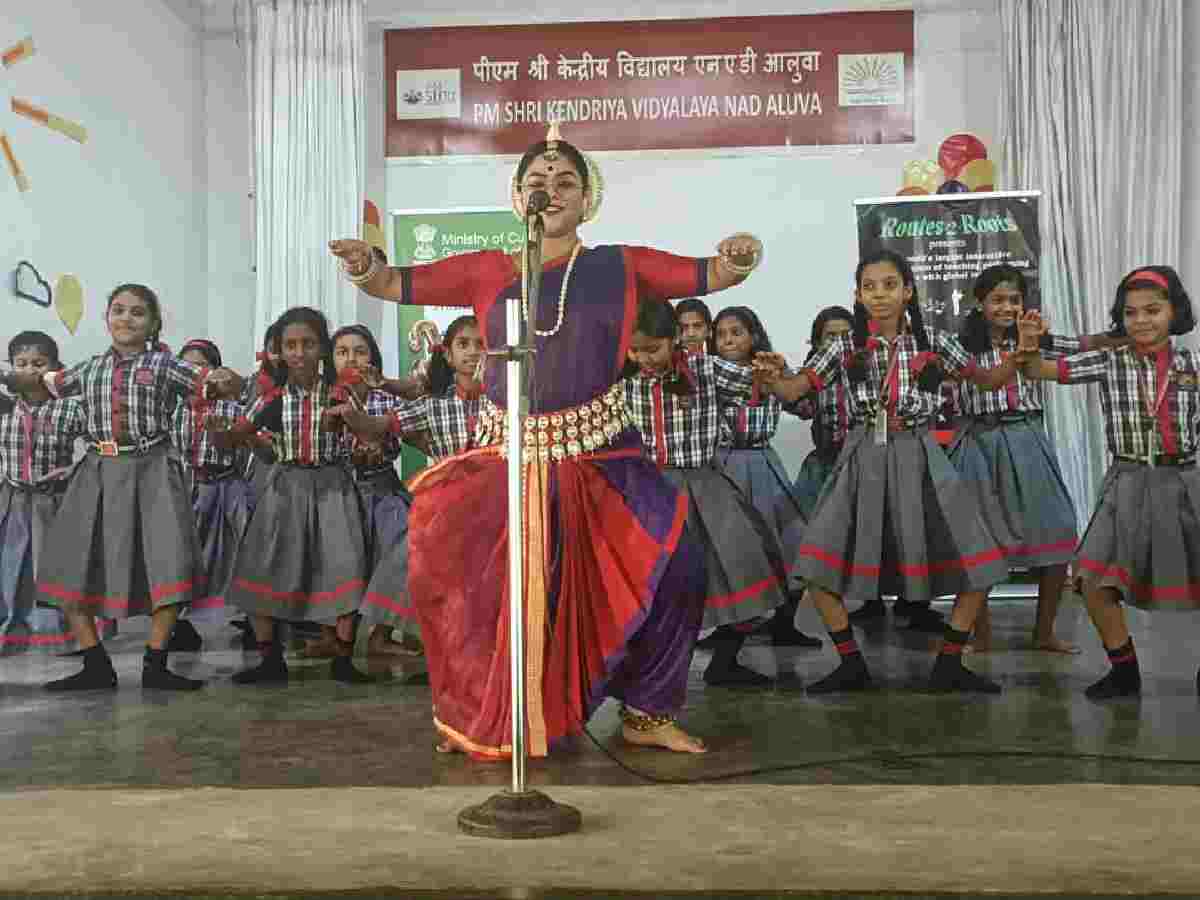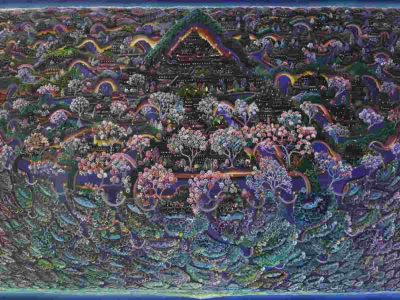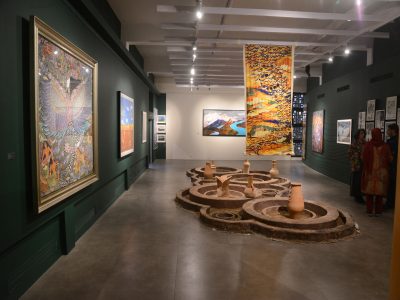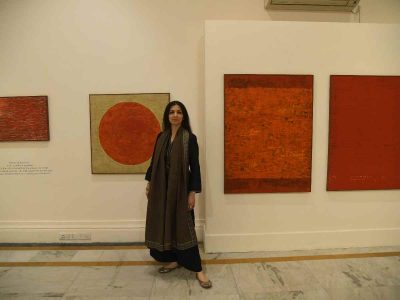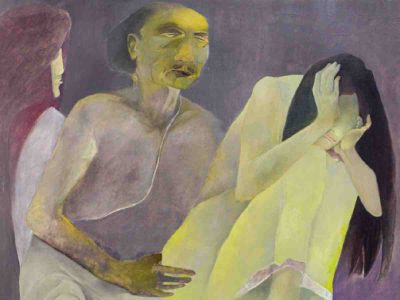Routes2Routes, which imparts cultural education to over 22 million students in more than 24,000 schools free of cost, has been listed on NSE’s Social Stock Exchange
Delhi-based non-profit organisation, Routes2Roots, recently became the first art and culture NGO to be successfully listed on the National Stock Exchange’s (NSE) Social Stock Exchange (SSE) platform in a glittering programme held at the NSE headquarters in Mumbai.
SSE, introduced by Securities and Exchange Board of India (SEBI) in 2023, holds immense potential to revolutionise social impact investing in India. With over 3.4 million non-profit organisations, the SSE can play a pivotal role in bridging the funding gap for these enterprises, enabling them to amplify their social impact.
Listing on the NSE earns multiple benefits in terms of tapping into the financial markets for funding. It also ensures transparency and compliance. With adequate funding, more activities can be planned to promote rich historical Indian art and culture.
With a pan-India presence, Routes2Roots covers all the country’s districts, imparting cultural education to more than 24,000 schools without cost, and affecting over 22 million students.
The listing on the NSE comes close on the heels of the organisation’s recent IPO which saw overwhelming demand and was oversubscribed in record time. In 2016, Routes2Roots initiated the world’s largest cultural education programme by creating interactive digital classrooms to impart art and cultural activities.
Routes2Roots raised Rs 1 crore from this public issue, which was used to create digital classrooms in 100 Uttarakhand and Himachal Pradesh schools.
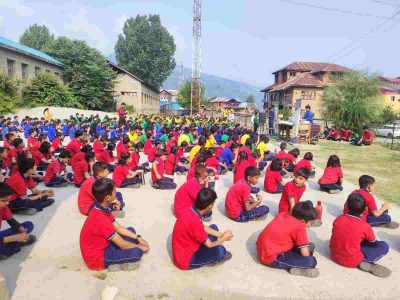
Much before Covid-19 when nobody had heard of webinars, they developed their own software to run these classes. In the process, they also set up digital classrooms nationwide to facilitate students’ virtual joining of these classes in their classrooms.
Due to unprecedented rains and floods in Uttarakhand and Himachal Pradesh last year, many schools were extensively damaged. They decided to provide modern learning tools to these schools by installing interactive flat panels so that they could attend cultural classes as well as K12 e-content with more than 50,000 videos and 1,00,000 question and answers as per NCERT curriculum.
Further, they digitised four schools in each district of these states and completed 100 installations in all 25 districts. The panels also help these schools comply with the New Education Policy (NEP).
“What started with 50 schools has expanded to over 24,000 schools, where 20 million children are trained in performing arts in about 20 disciplines,” informed Rakesh Gupta, co-Founder, Routes2Roots.
The organisation also surveyed schools in the country and found that most do not have Indian art and culture teachers and classes, and just one or two music teachers at the most.
“India’s rich art, culture and heritage consists of various musical instruments, dance forms and vocals which one teacher cannot possibly teach,” explained Gupta.
The organisation was provided financial support by the Ministry of Culture, Government of India. It developed live, realtime interactive software to reach students across India even in remote areas. This facilitated access to quality cultural education by gurus from reputed gharanas.
“This helped to not only preserve our Indian cultural heritage but also bring about awareness of art appreciation in young minds, thereby enhancing their holistic growth,” added Gupta.
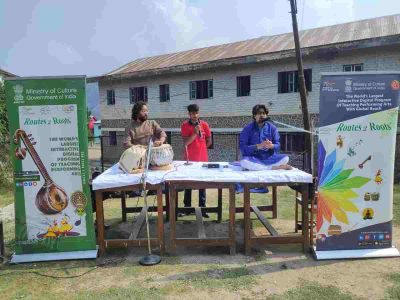
In 2010, Routes2Roots initiated the historic ‘Exchange for Change,’ which focussed on letter exchanges between students in India and Pakistan.
The yearlong programme consisted of four stages: letter writing; making postcards to share each other’s culture, like festivals, food, sports, among others; writing postcards depicting their hobbies, environment or family; and oral history, shared stories by parents or grandparents, narrated and recorded.
After completing these stages, a physical exchange of select students took place, giving them a life-changing experience of visiting their pen pals and witnessing each other’s culture first-hand.
“Misconceptions embedded over the years by vested groups were all crushed when similarities surfaced, and old dogmas were demolished. Educationists admitted that they were misguiding students with untrue histories,” said Gupta.
When it started in 2004, Routes2Roots started cultural exchange programmes in SAARC countries, during which Indian artists were flown into these countries, and artists from SAARC nations travelled to India. From facilitating Shahrukh Khan’s historic UK doctorate ceremony to Rishi Kapoor’s visit to Russia, the organisation’s efforts expanded beyond classical music to include popular music and cinema.
Also Read: Young artists get a platform to connect in Delhi
Further, Routes2Roots has promoted 65 years of diplomatic relations between India and Russia, showcasing 100 years of Indian cinema in China and South Africa, spreading Indian values, ethos and culture and playing a significant role in soft diplomacy. In collaboration with the Indian Council for Cultural Relations, Routes2Roots is also imparting live interactive classes in traditional Indian dance to more than 65 countries.
In April, Routes2Roots concluded its 14th national-level art and culture competition for students across India.
The competition covers keyboard, guitar, Carnatic vocal, flute, yoga, Bharatanatyam, violin, sitar, theatre and more. This initiative is a movement to preserve and promote Indian classical performing arts among the youth.
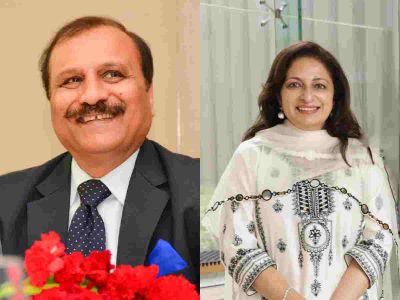
“Integrating arts into the curriculum is essential for the holistic development of students. It enhances their cultural awareness and creativity. Our offline art workshops and competition is well aligned with NEP’s vision of fostering creativity and cultural awareness among young learners. By experiencing and engaging with various art forms, students can develop a deeper appreciation for their cultural heritage. This initiative is a significant step towards making art education accessible to students across the country,” said Gupta.
Routes2Roots also routinely conducts art workshops in remote and security sensitive areas of Jammu. In June, a workshop was conducted at Doda and Bhaderwah in Jammu. Similar workshops are conducted across India. The workshops feature live sessions with esteemed artists and art teachers who visit schools to educate students on various traditional art forms, such as Kuchipudi, Hindustani classical music, Bharatanatyam and Odissi.
“We believe that art and culture generates tolerance and holistic living. We aim to reach out to the new generation at the school level teaching Indian art and culture as well as reaching the block level of the country,” concluded Gupta.

